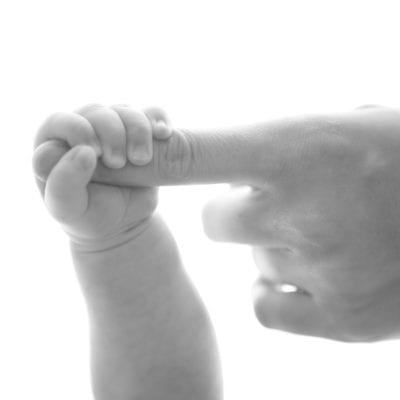…and Stop Embarrassing our Children
This morning, my toe had an unfortunate run-in with our kitchen door. I let out a screech high enough to wake the neighbours and, as a result, both children and my husband rushed to my aid and asked if I was OK. My son offered to kiss my toe better, and my daughter gave me endless cuddles, whilst my husband offered me ice to stop any swelling. I felt so cared for and incredibly silly considering the level of drama created from a tiny little toe. As I was sitting with my foot wrapped in ice I started to think about how we react to people getting hurt, small or big injuries, small or big people.
When my daughter was four months old my husband brushed her little head against a marble table edge, obviously an accident but nonetheless he was mortified and upset at his blunder. What made it even worse was the incident took place in front of my mother whom my husband desperately wanted to impress!
I will never forget how he panicked and tried to stop our little one crying. He hushed and rocked her for a few minutes and then in desperation he tried to distract her by showing her the Christmas lights. This saga went on for quite some time, him flustered with this little baby screaming hysterically whilst having bright lights thrust in her face.
I could not sit by and watch the situation unfold for too much longer. So I asked my husband to pass our child to me and I offered her cuddles and reassurance in the way any mother would.
I gave her empathy.

As a mother, my instant reaction was to assure this tiny person that I understood her cries, her shock and her panic.
My husband’s immediate reaction was to hush her cries and try to distract her from the situation.
I do not blame my husband at all for his reaction, I believe it is a common adult reaction to any child crying, whether they are crying due to pain or frustration, be they newborns or tantruming toddlers.
Obviously my husband was a little shocked at my reaction and even felt a little affronted that I felt the need to correct his parenting skills! But we took the opportunity to discuss how we would parent after this, how we would approach a scenario such as this in the future. We were of course eager to be on the same page but this was our first real parenting conflict and we disagreed strongly on how it should be tackled.
After 6 years we still disagree on the very same topic.
My husband does with the children as my parents-in-law did with him, they (and he) uses distraction.
There is no prolonged show of empathy or time for healing, there is no recognition of feelings. There is however a quick hug followed by the recognition of trees outside the windows and if you are really lucky a tractor might pass by in that exact moment.

Imagine, you have fallen and hurt yourself and people run up to you in a frenzy telling you to look at the tractor across the road instead of asking if you are OK. Would that work for you as an adult? Would you welcome it as a distraction or feel affronted that your feelings were not recognised? Do we really think that children would feel any differently?
Empathy is something we seem so ready to offer others. We even teach our children from a young age how to be empathetic towards other. We show our family members empathy rather than distraction, and even show that same emotion to our friends’ children. So why then are we so quick to teach our children that the world is a rough place? We seem determined to show them early on that they need to be hard. They need to be tough. Unfortunately, it seems many think that showing empathy will lead to weak, cry-babies.
So, do we only deserve empathy when we reach an age where we are legally able to purchase alcohol? Or maybe when we hit our 13th birthday? At what age do we switch and show our children empathy? At what age is it ‘acceptable’ not to distract them anymore?
I’m a keen “Facebooker”, I would be ashamed to admit how many times a day I snoop on what people are having for their dinner, or how their child won the star of the day. I do not take part in the oversharing, yet I do enjoy keeping on top of others’ daily rituals.
What I do not like though, is this current trend of ridiculing our children, and every time I log on Facebook it seems there is yet another post mocking a child for having feelings. These ongoing shaming posts show children that are filmed or photographed having a “tantrum”, the parent stepping back and almost “voyeuristically” viewing their child in hysterics over this silly little thing, then deciding to memorise that moment and even share it with the whole world. They are immortalised forever on the internet the day they cried. What a lovely thing to look back on when they are adults!
Then they decide it may well get them some more social media ‘likes’, hey, it could even go viral! So they post it for all to see… and sure, it is pretty hilarious to us that a child would cry hysterically over the colour of a plate. Except it’s not funny is it? To the child. That plate he is currently crying over means the world at that moment in time, and what does it say about us adults when rather than showing our children empathy, we readily mock them for their current limited emotional maturity?
Why, when it is children who are upset, do we somehow suppress our ability to show empathy? Why do we not try to empathise with their need for a blue plate when there is only a red one? A quick “I can tell you really like that blue plate… but today we cannot use the blue plate” is all it takes to offer empathy, as does a “I’m sorry you’re having a hard time”.
If one of our friends broke down over not finding that amazing shoe in the right colour- empathy would be our first reaction, so why is this a reaction we do not offer our children?
I hate seeing these posts of children crying. They upset me. Yes, it is silly to only want a blue plate but that does not mean we cannot act thoughtfully when a child is so clearly in distress. When we mock children for having feelings we are telling them their feelings are not valid. You would not accept that treatment as an adult, so why inflict it on a child?
I want my children to know that regardless of the scenario, I will be there offering them reassurance. I want them to grow up secure, confident enough to express their feelings, and as such, I am giving them the freedom to become more independent, instead of hushing their pained cries.
I acknowledge my children for the individuals they are, and instead of mocking their desire for a plate in a different colour, I will take the time to express my regret over the lack of that plate, and then, when my children have worked through their “trauma of the day” and accepted whatever plates I place in front of them, I will escape to the kitchen where I will send my husband a text, complaining about how these two little beings are driving me absolutely insane!
Because I am a normal mum… and of course the entire situation would infuriate me, so I will probably add in a few swear words too to really make a point of how much I need a break. And as I press send, I am hoping for a reply expressing regret that I am having such a difficult day, not a text telling me there is a shitty tractor passing by my window!








